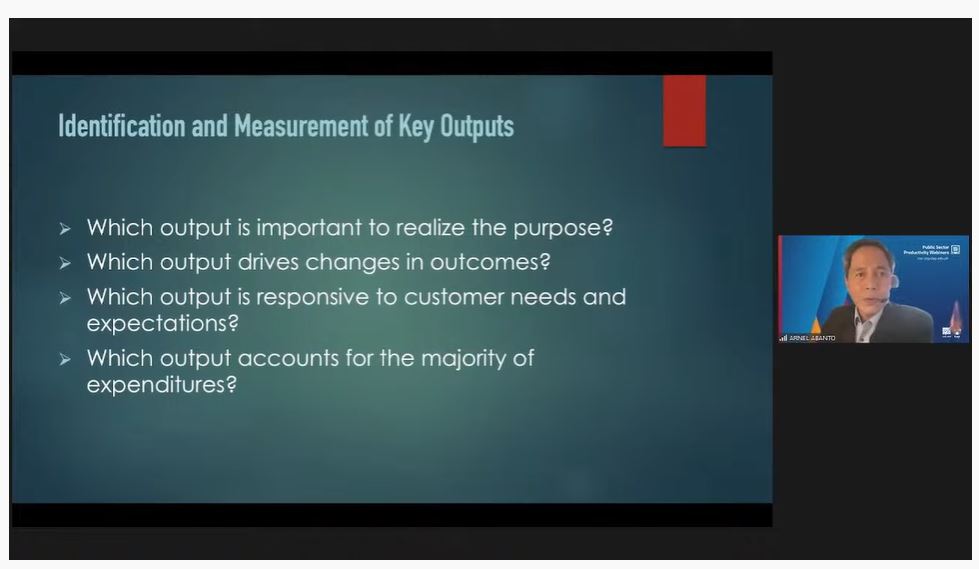The Development Academy of the Philippines (DAP) held a webinar series on Measuring Public Sector Productivity on 7-8 June 2022. DAP Vice President and Managing Director of the Productivity and Development Center, Mr. Arnel D. Abanto, delivered two sessions on key productivity concepts and approaches to measuring productivity.
The series is the second installment of this year’s Public Sector Productivity (PSP) Webisodes, a year-long initiative to raise awareness of productivity and innovation topics in the public sector through the virtual space.
Throughout the two sessions, Mr. Abanto emphasized that PSP matters because the public sector is a significant provider of services and a primary user of resources. Productivity measurement, in determining the relationship between valuable outputs generated and resources utilized for a particular period, can lead to critical information for improving the public sector’s performance. Mr. Abanto illustrated the process and types of information generated by presenting the results of productivity estimates he did for the education and health sectors in the Philippines.
Challenges in public sector productivity measurement
On the second day of the webinar, Mr. Abanto focused on a step-by-step approach to measuring PSP and gave a brief background on analyzing and interpreting productivity information. Mr. Abanto listed seven critical considerations in estimating PSP: the purpose of measurement, the outcome of productivity changes, results linkages, levels of analysis, availability and quality of data, information needs of the user of productivity information, and the productivity measurement framework. Of these, he pointed to the purpose as the most crucial.

Mr. Abanto also outlined the key challenges in measuring PSP: intra-governmental coordination on productivity measurement, accounting for quality change, and weak institutional mechanisms for regular data collection. Asked how to overcome the issue of data availability and quality, he responded that access to information should not be a challenge if the individuals and organizations involved understand the purpose of productivity measurement and how the information can help them identify and address gaps in the delivery of services and the achievement of targets in the public sector. This webinar series is available for replay on Facebook and Youtube. Stay tuned for more upcoming webinar series in the coming months.
